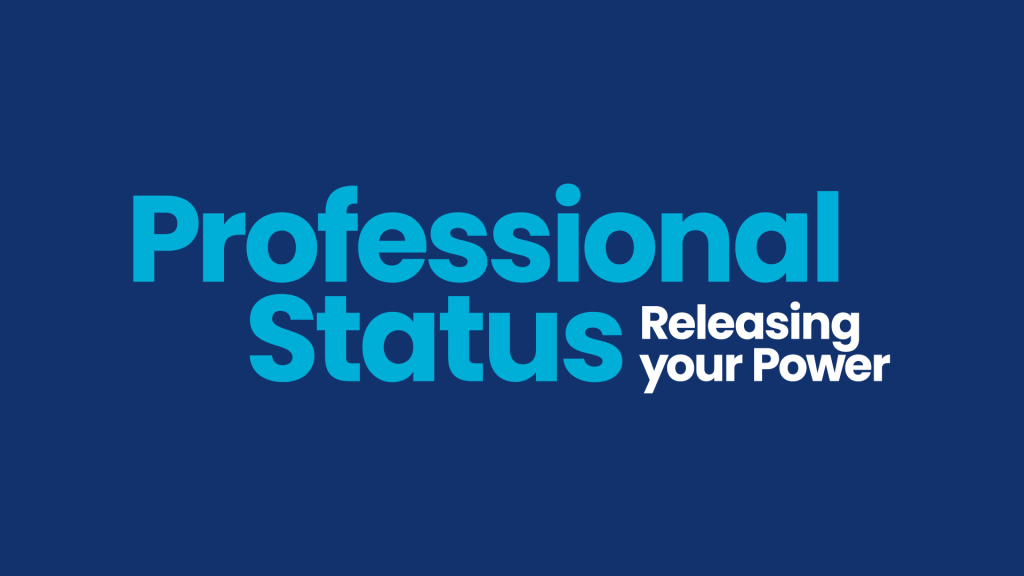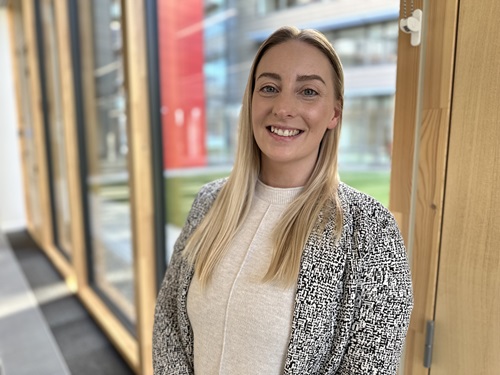CIMSPA’s Associate Director of Education and Careers, Natasha Eason on the benefits that professional status can bring for education providers.
For as long as any of us can remember, one message has come through loud and clear from the sport and physical activity workforce: “We want to be recognised as professionals.”
Whether it’s someone entering the sector for the first time, or a seasoned instructor, manager or coach looking to progress, people are calling for a clear way to benchmark their skills, demonstrate their competence and feel valued for the work they do.
Employers are demanding it too. They want to know that when they recruit or invest in developing their people, through qualifications, CPD or training, it leads to tangible progress. Not just a certificate, but real, measurable value and benefit to their business.
That’s why CIMSPA is introducing professional status, a new framework that recognises what someone does, the skills and knowledge that they have, and the impact they make.
As Associate Director of Education and Careers at CIMSPA, I want to speak directly to education providers: This is your moment to get on board.
What professional status means for learners
At its heart, professional status is about recognition and clarity. It gives learners, both those entering the workforce or upskilling, a structured path, backed by industry, mapped to real roles, and underpinned by standards developed with employers.
Instead of wondering whether a Level 2 or Level 3 course will “open doors,” learners will be able to say,
“This course helps me gain Professional Status as a Practitioner.”
“With more experience and development, I can work towards Advanced Practitioner Status.”
This clarity and standardisation of how you progress in the sector builds confidence. It makes training and skills development feel more worthwhile. Crucially for the future of the sector, by introducing a clear pathway through professional status when people can see their progress, they’re more likely to keep going, to develop, to grow, to stay in the sector, and most importantly for providers like you, to want to invest in more learning.
That’s good news for everyone.
Employers back it, education providers must too
We’ve worked closely with employers across the sector, and the feedback is consistent:
“We need a less complicated way to recruit, we need to understand what an individual can do.”
“We want to recruit and invest in professionals with skillsets we can trust.”
“We need training that delivers more than a qualification, it must build competence.”
“We’ll invest in development if it leads to clear career progression and business impact.”
Professional status answers that call. It allows employers to set recruitment expectations based on status, not just qualification levels. When they recruit they’ll ask for a Group Exercise Instructor Advanced Practitioner, a Personal Trainer Senior Practitioner for working with people with long-term health conditions, or Chartered Manager, because they know exactly what skills and knowledge that status represents. It also allows them to differentiate their services by demonstrating the professional status of their employees to customers.
For that system to work, employers need training and education that is aligned, quality assured, and mapped to the professional standards that underpin each status.
That’s where education providers come in.
The value of recognition and the role of providers
When individuals feel recognised, they stay in the sector. They invest in their future. They grow.
However, recognition needs a framework and it needs to be fair, credible, and sector-wide. That’s what professional status brings, and it creates new opportunities for education providers:
- Your programmes gain currency. They become part of a national system that employers and professionals recognise and ask for.
- You help shape careers. Your learners move from education into employment with a professional identity from day one.
- You gain trust from employers. They’ll know that your provision supports the professional development they want for their team by enabling them to advance their professional status.
- You support a lifelong learning journey. Status isn’t a one-time achievement, it evolves. This means that learners will come back to develop, diversify and grow their skills and the impact they can make as a recognised professional.
When a provider can say:
“This programme enables you to be accredited for Advanced Practitioner professional status,”
for example, you’re not just offering training, you’re delivering a launchpad for a career. A career that is sustainable, and one that offers true development and recognition.

Why this matters to you
When a course is mapped to professional standards, when it’s quality assured and endorsed, and when it provides the learner with the means of gaining or advancing their professional status, it sends a powerful message:
“This learning leads somewhere.”
“It helps you/your employee achieve professional recognition.”
“It improves your/your organisation’s capacity, adaptability and service offer.”
“It provides the key to unlocking the next stage of your/your employee’s career.”
“It gives you the means to offer new services, increase your reputation, generate new income.”
In our sector where many professionals and employers are diversifying by offering wellbeing programmes, working with people with long-term conditions, or branching into community health, the ability to upskill and specialise is vital.
Learning and training that contributes towards, and is aligned with professional status helps them do that with confidence.
A call to action for the education sector
This isn’t just another initiative. Professional status is a sector-defining shift. It’s backed by the workforce, demanded by employers and built with education in mind.
As an education or training provider, your role is pivotal. You are the enablers of progression. The shapers of professional identity. The link between aspiration and recognition.
So now is the time to align your courses and programmes with professional status. From September, professionals, aspiring professionals and employers will be selecting learning based on the professional status that it will enable them to be issued with. Employers will be recruiting not for candidates with specific qualifications but for candidates with a professional status.
The Education Team at CIMSPA are ready to help you identify how your provision aligns with each professional status and explore how you can
clearly communicate to learners and potential learners, how your courses connect to professional recognition and real career progression.
Be part of the future
Professional status is about more than a badge, it’s about giving people the recognition they deserve and building a workforce the sector can rely on to meet the demands of individuals, communities, employers and the nation.
Learners want this. Professionals need it. Employers back it.
Now, it’s up to all of us, especially education providers, to make it real.
Let’s build the future of the profession together.
